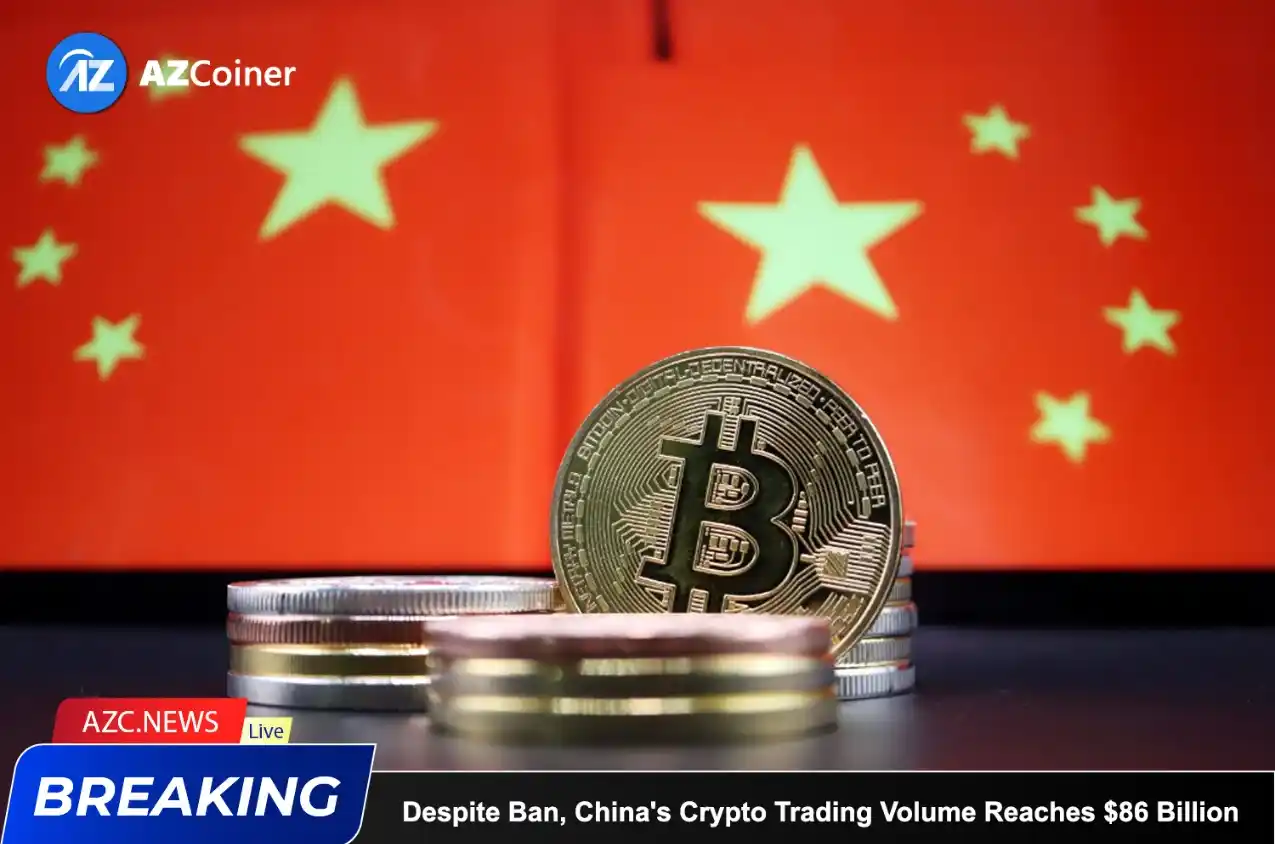As per a Reuters report, Chinese individuals are employing “innovative” methods to engage in the crypto market, utilizing grey-market dealers, overseas bank accounts, and Hong Kong’s support for digital assets.
Defying Regulatory Constraints
Dylan Run, a finance executive based in Shanghai, exemplifies the evolving strategies of Chinese investors in crypto, initiating diversification into cryptocurrencies in early 2023. Acknowledging the challenges faced by the Chinese economy and stock market, Run identified Bitcoin (BTC), the largest cryptocurrency by trading volume, as a reliable refuge akin to gold.
According to Reuters, Run now holds approximately 1 million yuan ($140,000) in cryptocurrencies, constituting half of his investment portfolio, compared to the 40% allocated to Chinese equities. While China’s stock market has witnessed a three-year decline, Run’s digital asset investments have surged by 45%.
Despite the official ban on cryptocurrency trading in mainland China, investors persist in trading tokens like Bitcoin on platforms such as OKX and Binance. Reuters notes that investors also tap into over-the-counter (OTC) channels and establish overseas bank accounts to access the prohibited digital asset market. Additionally, Chinese citizens leverage their $50,000 annual forex purchase quotas to transfer funds into accounts in Hong Kong, capitalizing on the territory’s supportive stance toward digital assets.
As retail investors flock to cryptocurrencies, China’s brokers and financial institutions are also venturing into the crypto-related business in Hong Kong. Faced with limited growth opportunities domestically, these entities are exploring new avenues to satisfy shareholders and boards amid a sluggish stock market and weak demand for initial public offerings, as reported.
Prominent institutions such as the Bank of China, China Asset Management (ChinaAMC), and Harvest Fund Management Co are reportedly delving into digital asset businesses in Hong Kong.
Thriving Informal Peer-To-Peer Crypto Trading
According to the report, China’s estimated $86.4 billion in raw transaction volume between July 2022 and June 2023 surpassed Hong Kong’s $64 billion in digital trading. Large retail transactions, ranging from $10,000 to $1 million, accounted for nearly twice the global average.
Data services provider platform Chainalysis highlights that much of China’s digital asset activity takes place through informal, “grey market” peer-to-peer businesses or over-the-counter transactions.
In Hong Kong, brick-and-mortar digital exchange stores have emerged, providing “lightly regulated” services. These offline shops, like Crypto HK, enable customers to purchase cryptocurrencies with minimal requirements and without providing identity documents.
China’s crackdown on the property sector and a struggling stock market have diminished confidence in traditional investments. Plummeting home prices and the CSI 300 Index’s 50% decline since early 2021 have prompted investors to turn towards alternative assets. The report notably emphasizes Bitcoin’s recent 50% surge since mid-October, attracting investors seeking opportunities amidst the country’s economic transition.
Related: Hong Kong Proposes to Issue an Operating License for Stablecoins
In summary, Chinese investors, driven by the economic downturn and seeking refuge from traditional investments, are employing creative methods to participate in the digital asset market. Despite regulatory restrictions, the allure of cryptocurrencies persists, with financial institutions also exploring crypto-related businesses.









